Some gardeners are suspicious about the survival of Hens and Chicks in winter. It is because, Hens and Chicks are considered cousins of Haworthia and Echeveria plants, which face difficulties in surviving winter.
So, in this article, we shall learn if you can leave hens and chicks outside in winter or not.
Hens and Chicks are frost-tolerant plants that can be effortlessly grown outside in winters. These plants can endure hardiness zones 3 having frost, but they are likely to go dormant during that time. Even if your hens and chicks take a beating, they will come back strong in spring.
However, not all species of Hens and Chicks are hardy plants. You have the option of bringing the plant indoors if grown in pots.
In this guide, we will talk about all Hens and Chicks will survive winter or not and some winter care tips for these pretty succulents.
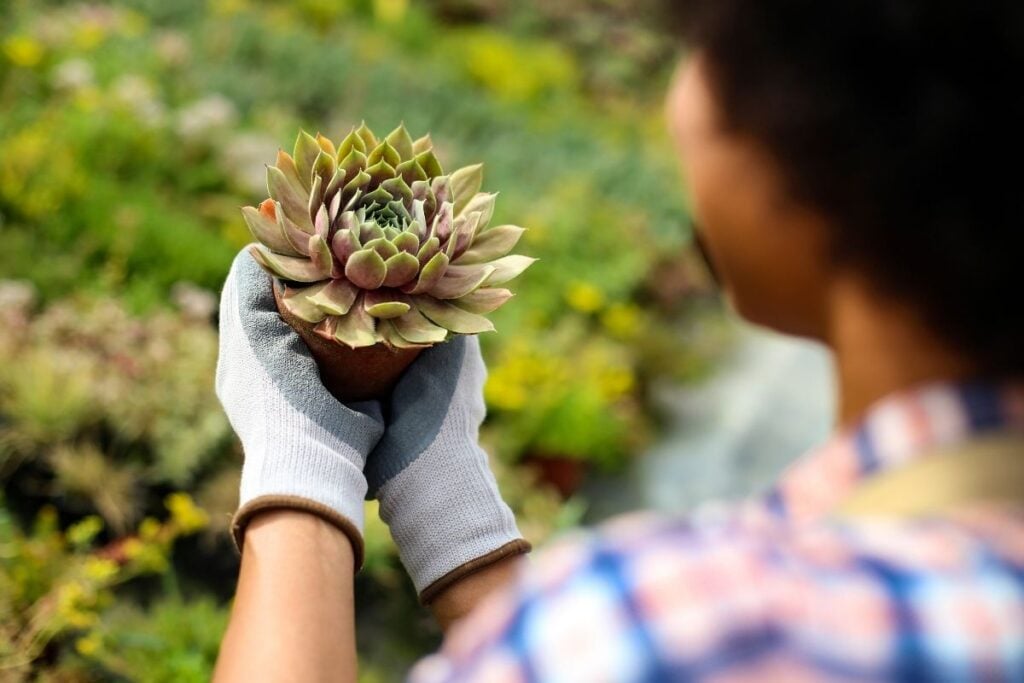
Can all Hens and Chicks live outside in winter?
Generally, Hens and chicks can resist USDA hardiness zones 3. It means that these plants will survive temperatures ranging from -30 to -40°F. But, all the varieties will be unable to tolerate such low temperatures.
Sempervivum Globiferums, Calcereums, Tectorums, and Arachnoideums will easily tolerate hardiness zones of 3, 4, and 5 in the garden and pots.
Sempervivum Macedonicum and Ciliosum can tolerate hardiness zones of 4 and 5 indoors and outdoors. But, they cannot withstand zones 3. It is because, naturally, their distribution area is not such a cold, low-temperature area.
So, you can deduce that the favored species of Hens and Chicks will be efficiently grown outside in winter without any complications. It is another desirable feature of this succulent that increases their demand.
However, still, you will face a little bit of struggle while growing Hens and Chicks. Continue reading to know why.
Will Hens and Chicks suffer frost damage?
The varieties that cannot tolerate low temperatures will not have healthy growth. They will reduce their size and change their shape. The leaves of the plant will shrink inwards to close. The plant won’t be able to hold juices in its leaves.
Though these hardy succulents can survive winter, sometimes they will receive frost damage. It happens when frost arrives early in the second half of the fall. The plants are still not prepared for such early frosts.
So, they will acquire frost damage. Hens and Chicks are not even ready to receive the rare, brutal frosts November earns for a short time.
Hens and Chicks undergo heavy frost damage in a sudden temperature change. The indications of damage will be visible during the springtime. You will see the leaves getting frozen, turning black and rotting.
The species of Hens and Chicks that contains larger and broad leaves are the ones to suffer more in such low temperatures. It is because their leaves carry more water than the smaller species.
This water freezes during the brutal frost weather. As a result, the leaves begin to crack and damage the plant.
So, generally, if fall doesn’t obtain the early frost and temperature drops gradually, only then will the Hens and Chicks remain healthy throughout the winter. They will get enough time to prepare themselves for the frosty winters to adapt to winter without any trouble.
What happens if my Hens and Chicks are not over-wintered?
A typical situation where the Hens and Chicks will not stay well in winter is when these plants are not over-wintered well. It occurs when the temperature is too low, but snow is absent.
Hens and Chicks will not remain healthy in such conditions. However, they can recover quickly.
There should be a proper adjustment between the low temperature and snow. Just as early frost can damage the plant similarly, too much cold without any snow will affect the plant’s health.
Looking for gardening supplies? We have tested 100's of products before recommending them to you guys. Check out our best pick below:
| Image | Gardening Supplies | Best Price? |
|---|---|---|
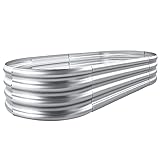 Top
Top Top
Top | Raised Garden Bed Kit | Check On Amazon |
 | XLUX Soil Moisture Meter, Plant Water Monitor, Soil Hygrometer Sensor for Gardening, Farming, Indoor and Outdoor Plants, No Batteries Required | No Results |
 Top
Top Top
Top | 82 Pcs Garden Tools Set and Extra Succulent Tools Set | Check On Amazon |
 | Joeys Garden Expandable Garden Hose with 8 Function Hose Nozzle, Lightweight Anti-Kink Flexible Garden Hoses, Extra Strength Fabric with Double Latex Core, (50 FT, Black) | No Results |
 Top
Top Top
Top | Dual Chamber Compost Tumbler | Check On Amazon |
 Top
Top Top
Top | Sunnyglade Plant Stakes | Check On Amazon |
 Top
Top Top
Top | Organic Cold Pressed Neem Seed Oil | Check On Amazon |
 Top
Top Top
Top | Mighty Mint Gallon :-Insect and Pest Control Peppermint Oil | Check On Amazon |
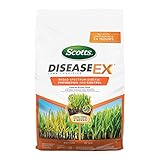 Top
Top Top
Top | Scotts DiseaseEx Lawn Fungicide | Check On Amazon |
 Top
Top Top
Top | Jacks Classic 20-20-20 All Purpose Fertilizer | Check On Amazon |
 Top
Top Top
Top | 30,000 Seeds Pollinator Attracting Wildflower Mixture | Check On Amazon |
 Top
Top Top
Top | Survival Vegetable Seeds Garden Kit-Over 16,000 Seeds | Check On Amazon |
How can I take care of my Hens and Chicks outside in winter?
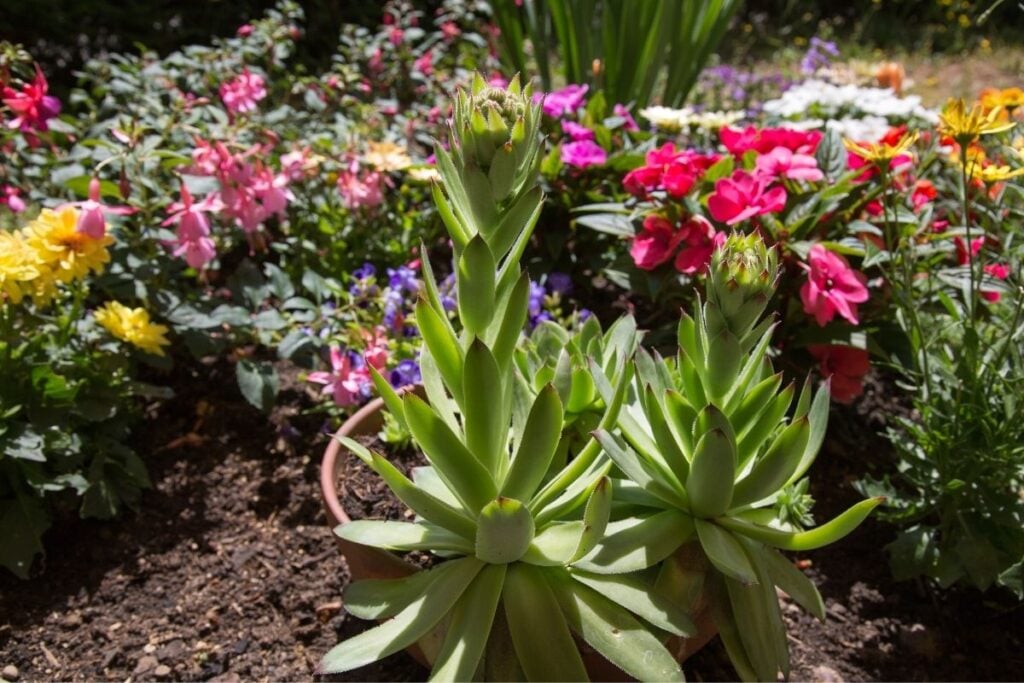
There is nothing much to do for Hens and Chicks in winter. Most of the time, they will survive and thrive in maximum negligence.
But there are some basic things you should do for your Hens and Chicks to support them overwinter easily.
Prepare Hens and Chicks for the winter
During winters, there are high chances of fungal disease development. So, your first duty should be to spray the plant with some amounts of fungicide.
The chances of fungal development increase when the weather is cold but, there has been no frost compared to the climate.
Usually, the Hens and Chicks do not like moist soil all the time. In winters, you should give special attention to the soil’s moisture. It should not have too much moisture because that will rot the plant.
In the winters, the Hens and Chicks will be dormant. As a result, they won’t take up any moisture. Add some rubble to the soil bed. It will prepare the plant for better wintering.
Some gardeners cover the plant with leaves and barks to protect Hens and Chicks from cold. It is not a good option because covering the plant will generate the risk of diseases.
Also read: Are Hens And Chicks Annual Or Perennial?
Should I mulch the Hens and Chicks soil bed?
Mulching the Hens and Chicks is not at all a bad idea. It can prevent cold temperatures from reaching the roots. You should mulch the plant with small stones or pebbles. Adding pebbles will also give your Sempervivum soil bed a unique look.
It is not mandatory to mulch the soil bed. Using dried leaves and barks will give rise to fungal diseases.
It will become an ideal condition for the growth of fungi. So, instead of taking care of them by mulching with organic materials, you will be troubling them more.
Also read: What Kind Of Soil Do You Use For Hens And Chicks? (+Best Soil Mix)
How much sunlight do Hens and Chicks need in winter?
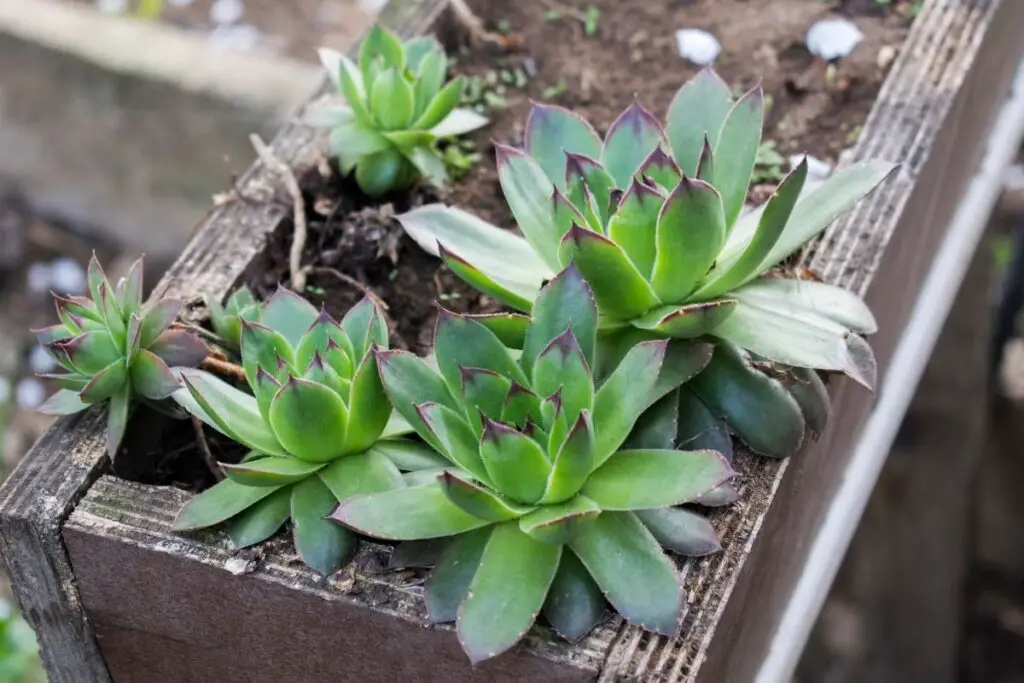
I mentioned earlier that Hens and Chicks remain dormant in winter. It means they are hibernating.
In such conditions, their growth will be slowed down and even halted in some cases. They won’t require so much sunlight like the spring or summer. But photosynthesis is still going on in them. The process will be slow compared to other seasons.
Let them have at least 4 hours of sunlight. It can be either indirect or direct in different stretches.
Even if the plant receives full sun, there won’t be any harm. In the winters, the intensity of the sunlight is considerably less than in summers.
Also read: How Much Sun Do Hen And Chicks Need? (Light Requirement)
Do Hens and Chicks require watering in winters?
Hens and Chicks do not need water in winters. Firstly, they won’t take up any water because they are dormant. Secondly, the soil is frozen.
Watering will give rise to other issues. Even if there is no frost, but warm in winters, you still won’t have to water them. Due to warm winter, the soil will hold enough moisture. Watering them will increase the threat of root rot.
However, you can water the Hens and Chicks soil bed a little if the bed gets completely dry.
Instead of watering with a watering can try spraying water to the soil bed. Spraying will make sure the soil bed remains moist and not overwatered.
Also read: How Much Water Do Hens And Chicks Need? (Underwatering+Overwatering)
Remove dried leaves
Generally, when Hens and Chicks shed leaves, it is trusted as a problem. But it can be due to the variety also. Some varieties of Hens and Chicks have many leaves that dry and fall off the plant during the winter.
As I mentioned earlier, leaves and barks can increase the risk of diseases.
Besides, the leaves can turn soggy due to snow in cold frosty winters. Such conditions further increase rotting and fungal infections. Thus, it is better to remove the dead leaves to prevent such serious issues.
Moreover, removing the leaves during the fall will also make your garden look clean and tidy.
How do I care for my Hens and Chicks after winter?
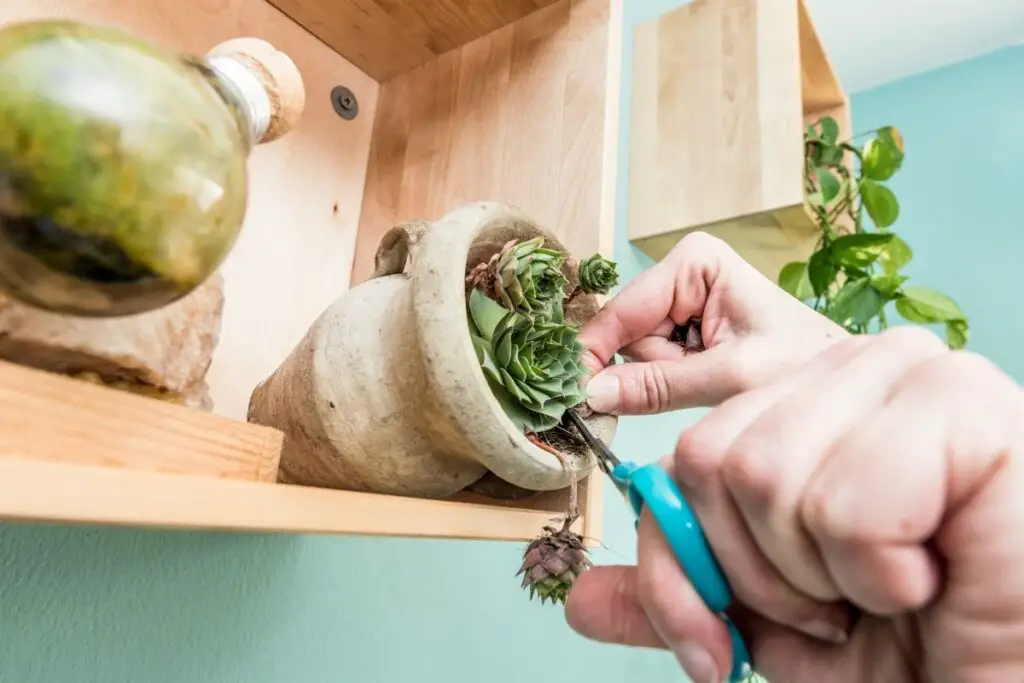
Clear all the snow from the plant and soil bed when the weather normalizes at the beginning of spring. It will ensure less water remains in the soil bed.
The plant already holds enough water in its leaves and stems. Removing snow will decrease the amount of water accumulation and improve the plant’s condition.
Finish clearing the snow if your region doesn’t receive further late frosts.
Dying of the leaves is common in all plants during the winter. Remove those dead leaves from around the plant and soil bed. These leaves might also carry water in them.
Removing these dead leaves will not only reduce water but will also reduce the chances of fungal diseases.
Next, you must apply some fungicides to prevent any fungus infections. Pests, insects, fungal spores, and larvae will overwinter between the openings of the Hens and Chicks.
Try executing some prophylactic treatment with insecticides and fungicides when the spring arrives. It will confirm that your plant gets rid of the infestation. Alongside, it will prevent further infestation.
Overwintering outdoor Hens and Chicks in pots
Wintering Hens and Chicks in pots is not distinct from the in-ground Hens and Chicks. If the potted Hens and Chicks are outdoors, follow the same winter tips as the Sempervivum in the garden.
You must still consider a few things, so let’s talk about them.
If the pot is outside, keep it at ground level instead of placing it on a table, desk, or patios. It will prevent the freezing wind from damaging the plant.
Use plastic pots instead of ceramic. There can be chances of container crack due to frozen ground.
If you want, you can shift it indoors. Arrange some additional light indoors because the Hens and Chicks will require some amount of light for the ongoing photosynthesis.
Final thoughts
Hens and Chicks are some of the popular outdoor succulents. People love them because of their low-maintenance features.
Another reason they are selected to grow by most gardeners is, they don’t need much care during winters.
Though two varieties of Hens and Chicks cannot tolerate hardiness zones 3, the other varieties will endure it efficiently.
They are the most popular ones. So if your region belongs to zone 3, you can easily enjoy these Hens and Chicks species in your garden.
There are very few care tips you need to give attention to for healthy Hens and Chicks.
Prepare them for winter and follow the winter care tips like water, sunlight, removing dead leaves, and mulching to enjoy the lovely Hens and Chicks again in spring.
Reference: Wikipedia, Iowa State University of Science and Technology, The University of Arkansas Division of Agriculture, NSDU, The Ohio State University, Missouri Botanical Garden.
